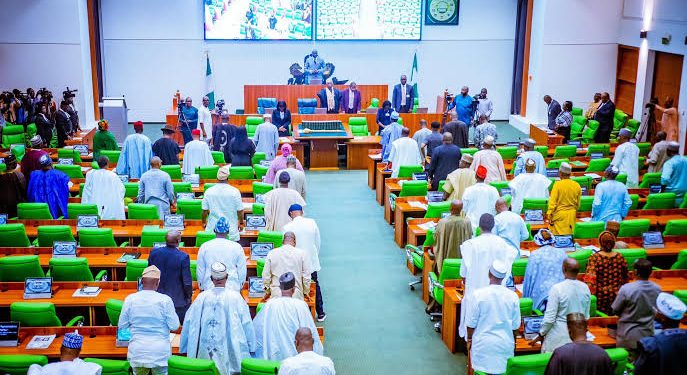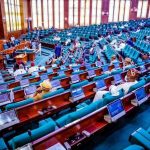President Bola Tinubu has signed into law four major tax reform bills, ushering in a sweeping transformation of Nigeria’s fiscal system that will centralise tax collection, streamline the country’s tax architecture, and shield low-income earners from heavy tax burdens.
The new laws strip major federal agencies, including the Nigeria Customs Service (NCS), Nigerian Upstream Petroleum Regulatory Commission (NUPRC), and various ministries and departments, of their tax collection powers, transferring that authority solely to the newly established Nigeria Revenue Service (NRS). This restructuring is expected to take full effect on January 1, 2026.
Describing the development as a milestone in Nigeria’s journey toward economic modernisation, Tinubu said, “We have opened the door for new economic and business opportunities. We are showing that Nigeria is truly ready and open for business.” He hailed the move as a clear signal to investors, both local and foreign, of the country’s readiness for transparent and efficient revenue administration.
The laws signed include the Nigeria Tax Bill (Fair Taxation), Nigeria Tax Administration Bill, Nigeria Revenue Service (Establishment) Bill, and the Joint Revenue Board (Establishment) Bill. They aim to unify Nigeria’s fragmented tax system, eliminate duplications, reduce red tape, and restore investor confidence by promoting transparency and coordination at all levels.
The NRS, formerly known as the Federal Inland Revenue Service, will become the central body for collecting all federally chargeable taxes. Its Executive Chairman, Zacch Adedeji, confirmed that the law’s implementation will begin in 2026 to allow time for planning, education, and systems alignment. The transition timeline was designed to sync with the fiscal calendar and international best practices.
This reform comes nearly two years after Tinubu established the Presidential Committee on Fiscal Policy and Tax Reforms led by Taiwo Oyedele, a tax expert from PwC. The committee was tasked with redesigning the tax structure, reducing inefficiencies, and boosting collection through harmonisation.
One of the committee’s most transformative outcomes is the simplification of Nigeria’s tax system. Over 200 taxes and levies will be merged into just 10, eliminating the long-standing burden of multiple taxation that has stifled business growth for more than a decade. According to Oyedele, this change will dramatically reduce tax evasion, increase compliance, and ease the pressure on low-income citizens and small businesses.
Among the most notable elements of the reform is the introduction of a zero-rate VAT framework for essential goods and services. From 2026, food, education, healthcare, transportation, housing, and other critical sectors will be fully exempt from VAT, which remains at 7.5 percent. Oyedele said this exemption targets where over 80 percent of Nigerians’ income is spent, meaning “prices of essential goods should come down,” thereby easing the cost of living.
In addition, over a third of Nigeria’s workforce—especially minimum wage earners—will now be exempt from paying personal income tax, while small and nano businesses will no longer be required to charge VAT, deduct withholding tax, or pay company income tax.
These reforms, Oyedele said, were crafted with three guiding principles: people-centricity, efficiency, and economic growth. Rather than increasing tax burdens, they aim to improve revenue through digitisation, transparency, and curbing wasteful incentives that have drained government funds without stimulating growth.
The bills faced considerable resistance at various stages. Governors from northern states objected to parts of the proposed VAT revenue-sharing formula, fearing that a derivation-based structure would benefit consumption-heavy southern states. Customs also pushed back against the reforms, warning that stripping it of tax collection responsibilities could undermine its core operations. However, the eventual passage in May 2025 was achieved through intense consultations and pressure from economic stakeholders and international partners.
Senator Sani Musa, Chair of the Senate Finance Committee, acknowledged the public concerns but said the final legislation reflects national consensus, particularly by protecting low earners and ensuring a more equitable tax structure. He highlighted the law’s support for critical sectors such as oil, gas, and export processing, which are vital for industrial growth.
House Finance Committee Chair, Hon. James Faleke, described the legislative journey as a “mission impossible” turned into reality, praising the collective will of lawmakers, governors, and citizens in securing the overhaul.
The private sector has responded with cautious optimism. The Nigeria Employers’ Consultative Association (NECA) described the reforms as a breakthrough after a decade-long battle with multiple taxation. “This is ‘uhuru’ for us,” said NECA’s Director-General, Adewale-Smatt Oyerinde, while warning that effective implementation remains the real test.
Special Adviser to the President on Energy, Olu Verheijen, revealed that the new tax laws also codify key executive orders designed to boost investment in the oil, gas, and clean energy sectors. These include tax exemptions for compressed and liquefied natural gas, cost-efficiency mandates in upstream petroleum operations, and incentives for energy transition and infrastructure development. According to Verheijen, these reforms have already helped unlock over $6 billion in fresh investments.
As Nigeria prepares for full implementation in 2026, authorities say the focus now shifts to public sensitisation, stakeholder engagement, and system readiness. With a simplified and centralised tax system backed by strong digital infrastructure and legal clarity, the Tinubu administration hopes to drive economic growth, restore investor confidence, and shift Nigeria’s tax-to-GDP ratio
to reflect its true potential.










